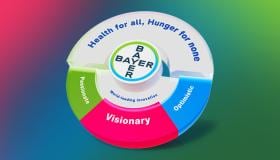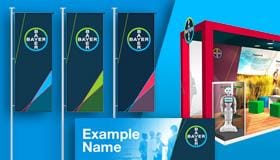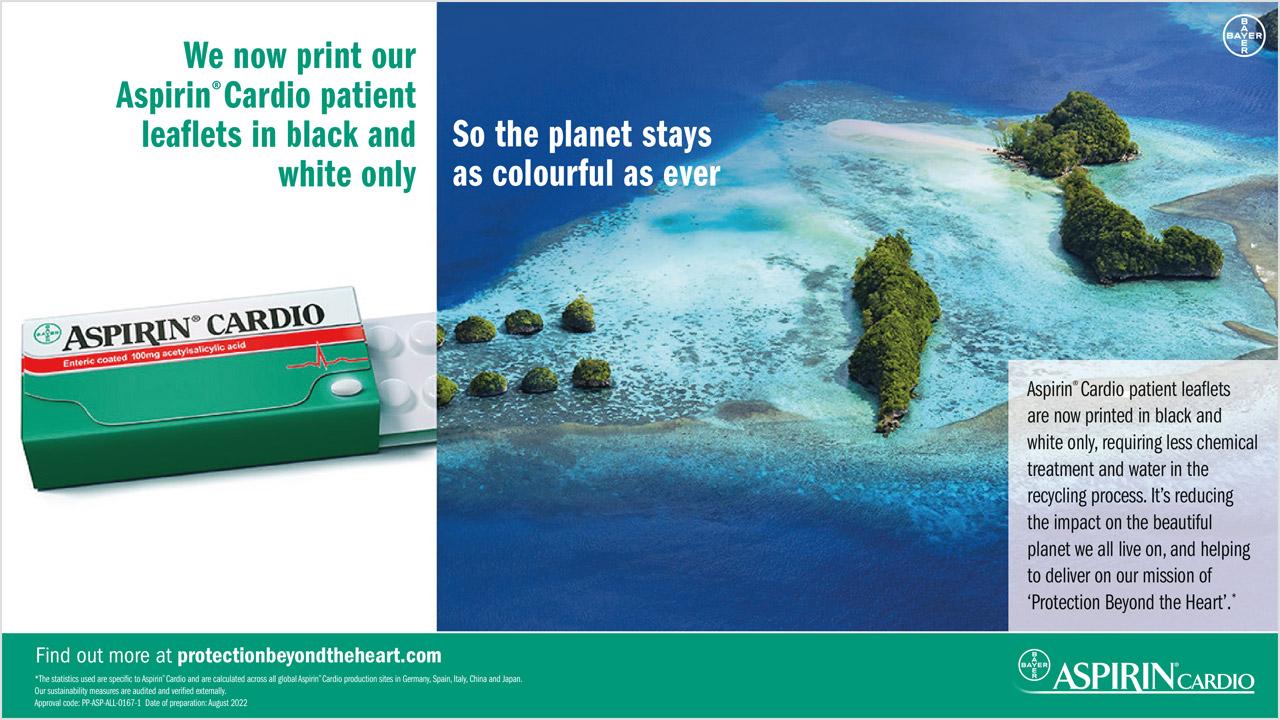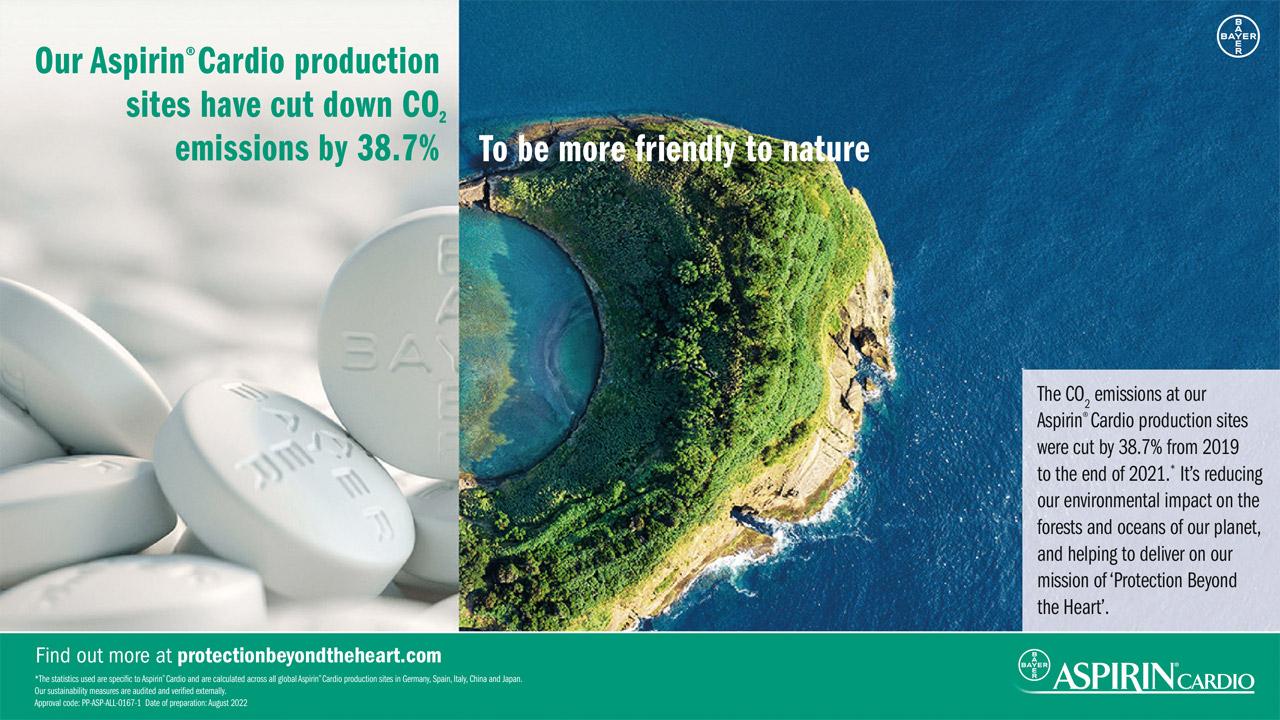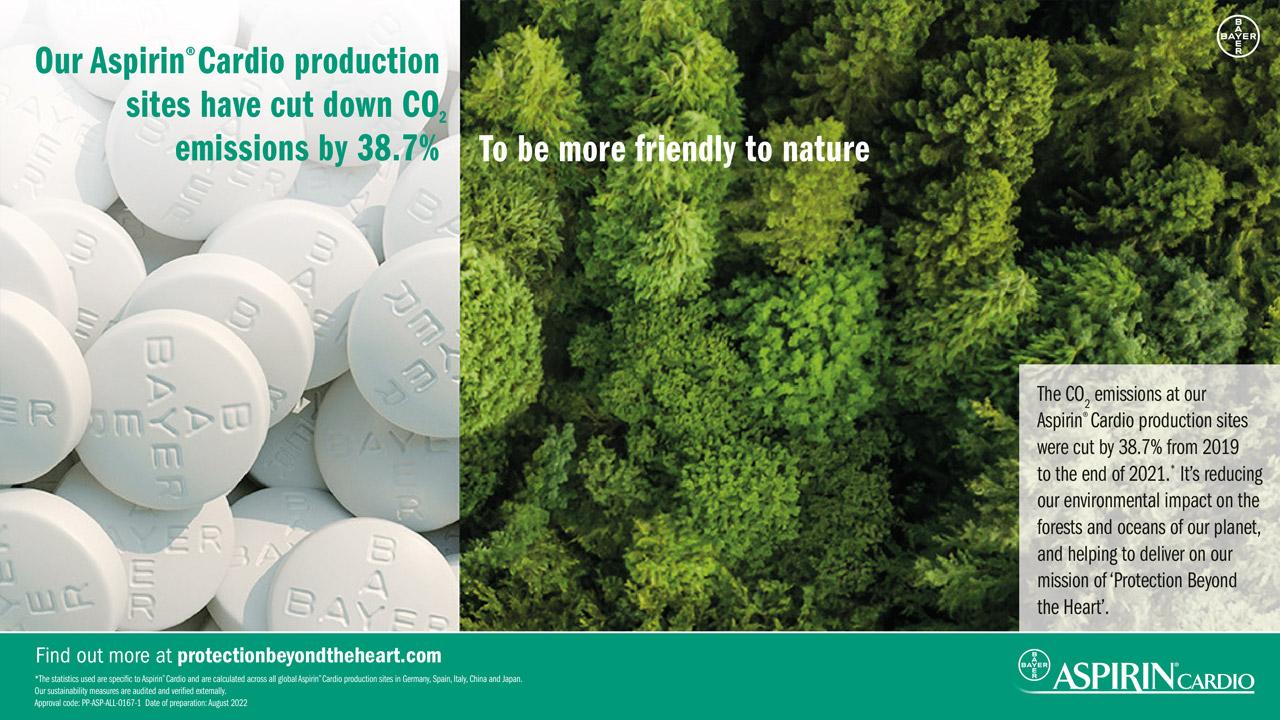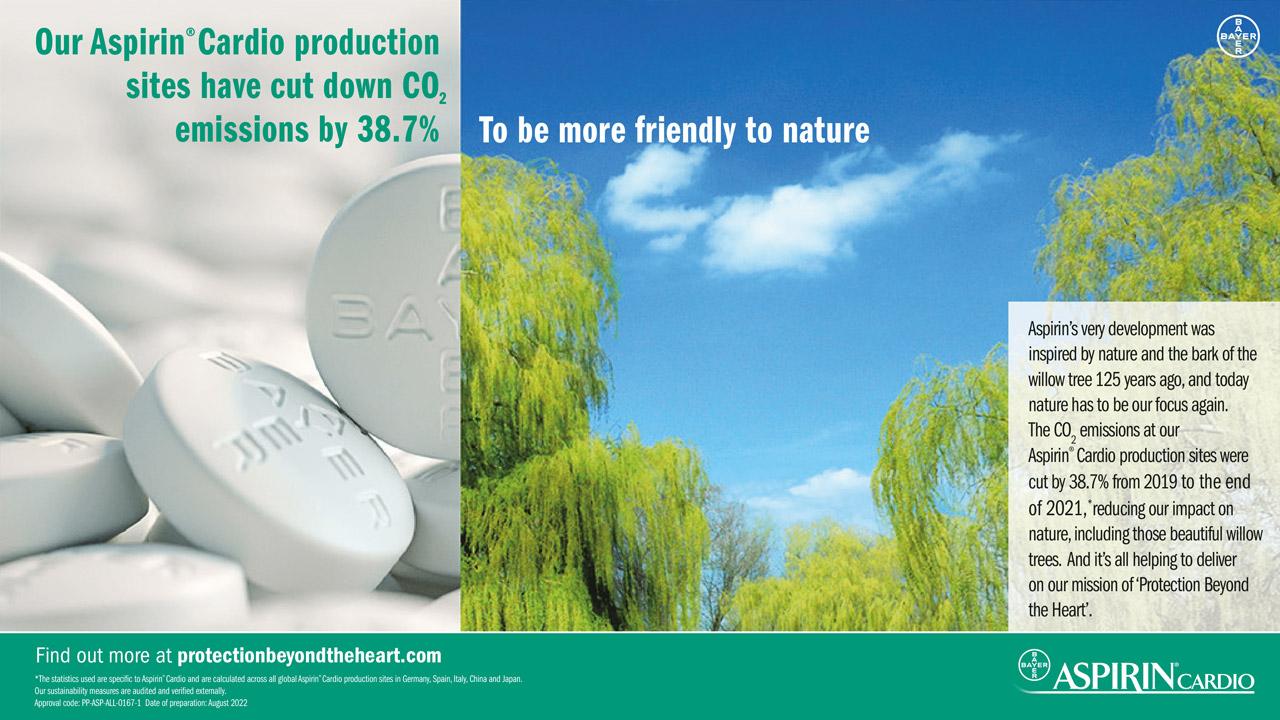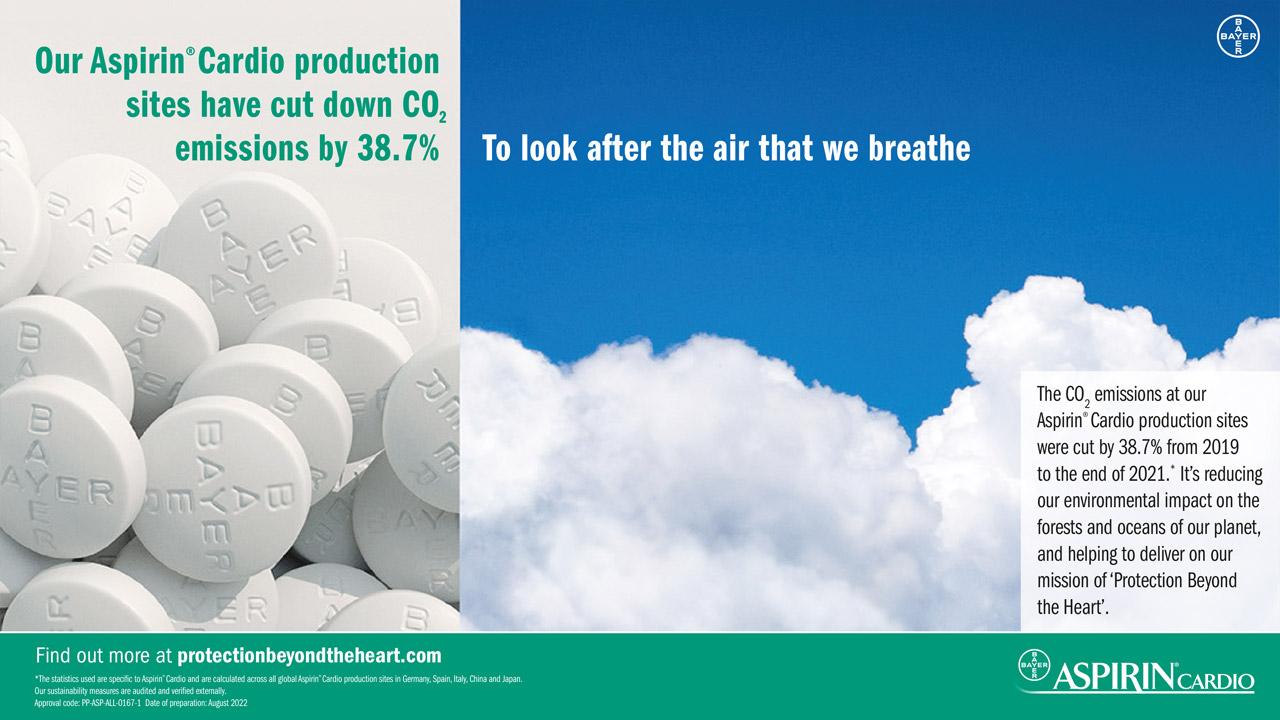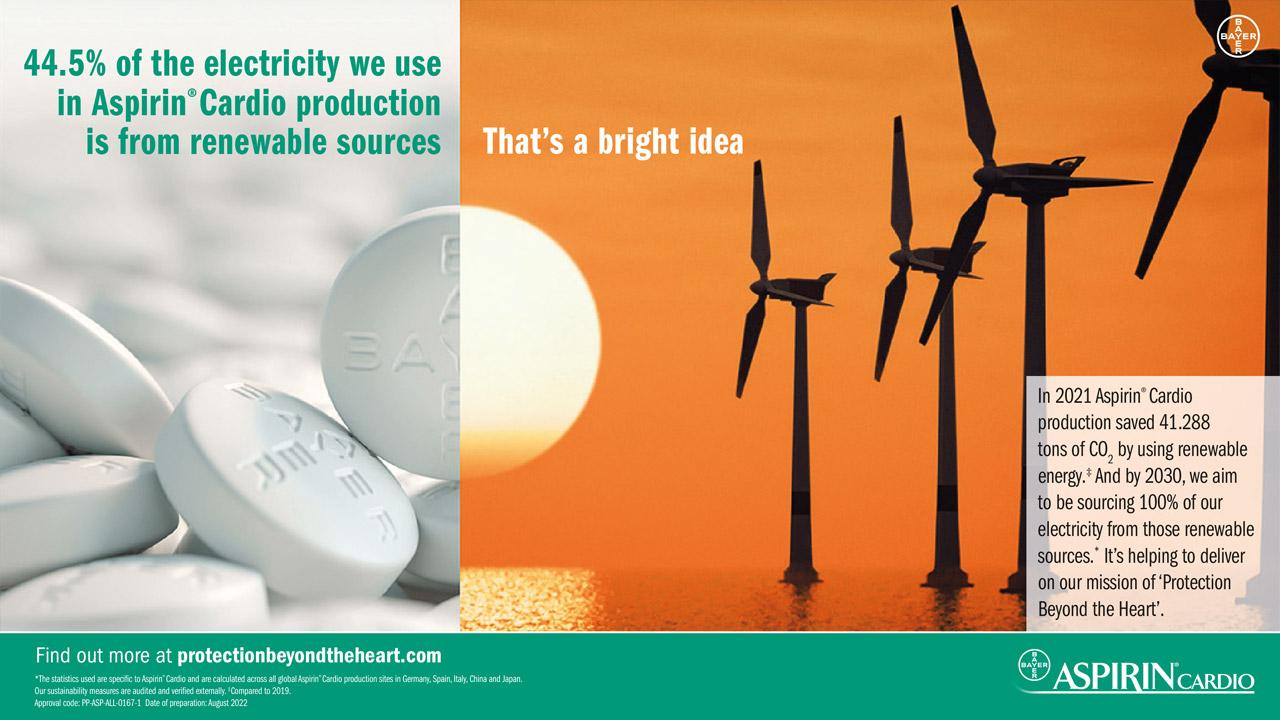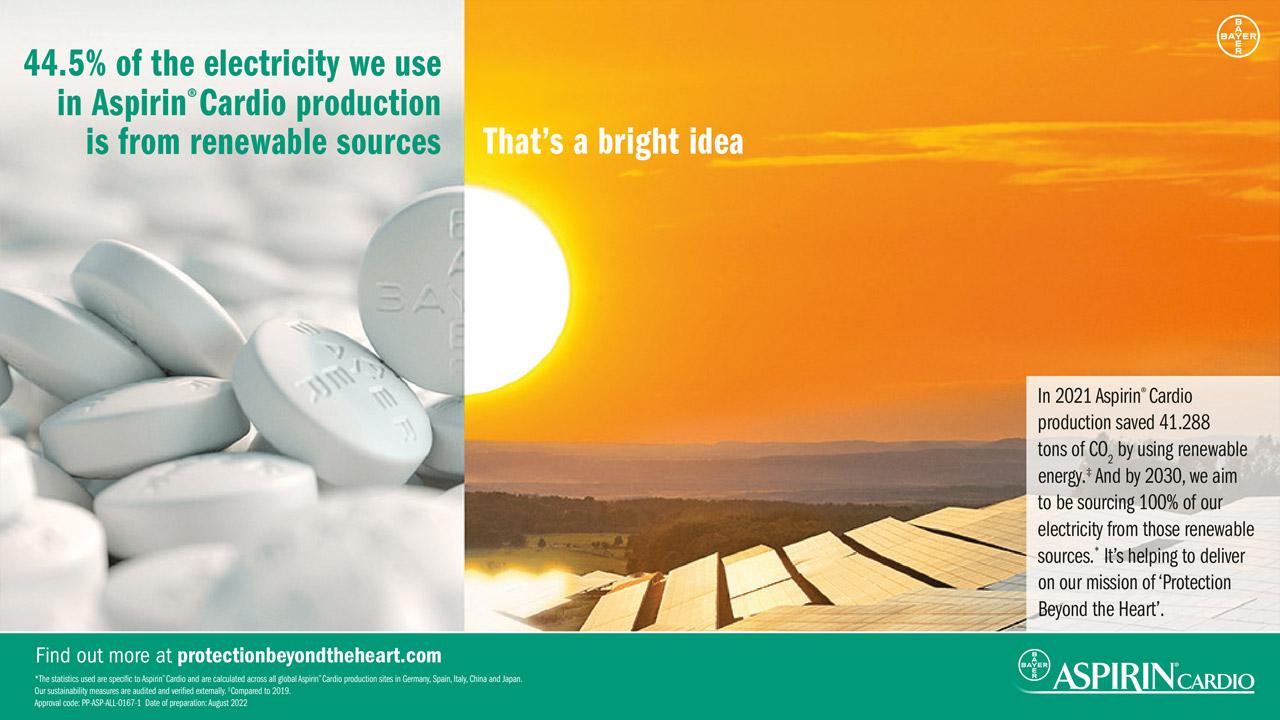Aspirin Cardio: Sustainable branding is successful branding
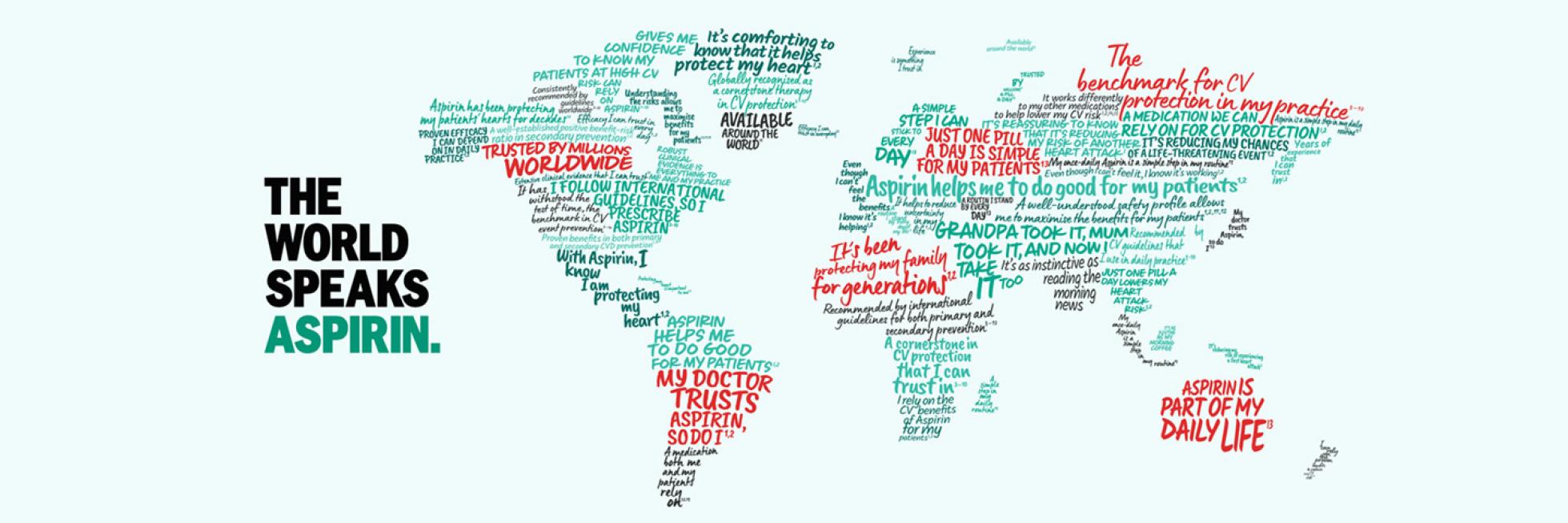
Prescription healthcare brands usually market themselves based on medical factors. Would a campaign based on sustainability ever catch on? Aspirin Cardio was brave enough to do it, and it has set an example that many others could follow.
Few brands are as well-known or long-lasting as Aspirin – and within the Aspirin family, Aspirin Cardio, which is specifically intended for the treatment or prevention of cardiovascular effects, has been enjoying success for 30 years. In fact, it is the Pharmaceuticals division’s fifth highest-selling brand, and a real volume blockbuster, with more than 15 billion tablets produced in 2022.
Of course, the greater the success, the greater the competition that arises. And in Aspirin Cardio’s case, there are hundreds of generics on the market, typically undercutting Bayer’s premium product on price. Customer value and trust Aspirin Cardio, and they are often willing to pay more for it – but we could not sit still or take this for granted. A new way to differentiate Aspirin Cardio from generic competitors needed to be found.
That’s where sustainability comes in. Of course, sustainability is at the forefront of everyone’s mind, whether consumer or value chain actor. But there’s more to it than that, as Stefanie Kleinegraeber, Brand Lead Aspirin Cardio, explains: “Sustainability is not something that comes for free. To make a concrete sustainable difference requires real investment. And as our key competitors are price-driven generic companies, Sustainability is an extra cost they are unlikely to take on willingly.
Stefanie Kleinegraeber
Brand Lead Aspirin Cardio
stefanie.kleinegraeber@bayer.com
Maxim Osipovs
Program Lead
maxim.osipovs@bayer.com
Bernhard Grupp
Brand Education & Enablement
bernhard.grupp@bayer.com
In fact, the link to sustainability is even more concrete. Health authorities are more likely than ever to include sustainable credentials as a factor in tender processes. And when it comes to Aspirin Cardio in particular, pollution is understood as a major risk factor in developing cardiovascular disease. Therefore, Aspirin Cardio had an opportunity to fulfill its mission in a holistic way by addressing the root cause of cardiovascular conditions.
Sustainability starts with actions, not talk
Market research in our target groups about the relevance of sustainability gave us two main learnings. Firstly, generic phrases like “we are greener now” are no longer enough: sustainability messages need to be concrete and specific about your impact. Secondly, you can’t just talk about sustainability because you feel like it: your messaging has to relate back to your customers and be meaningful for them.
“With this in mind, we looked into our production and supply network for Aspirin Cardio, and found three pillars we wanted to concentrate on: emissions, renewable energy, and packaging,” explains Maxim Osipovs, Program Lead. “We concentrated on reducing the overall CO2 emissions within our network, and in 2019-2021, we were able to cut our emissions by 38.7%. The Paris Climate Agreement states that we need to reduce our emissions by 42% by the end of the decade, so with Aspirin Cardio, we are already nearly there.
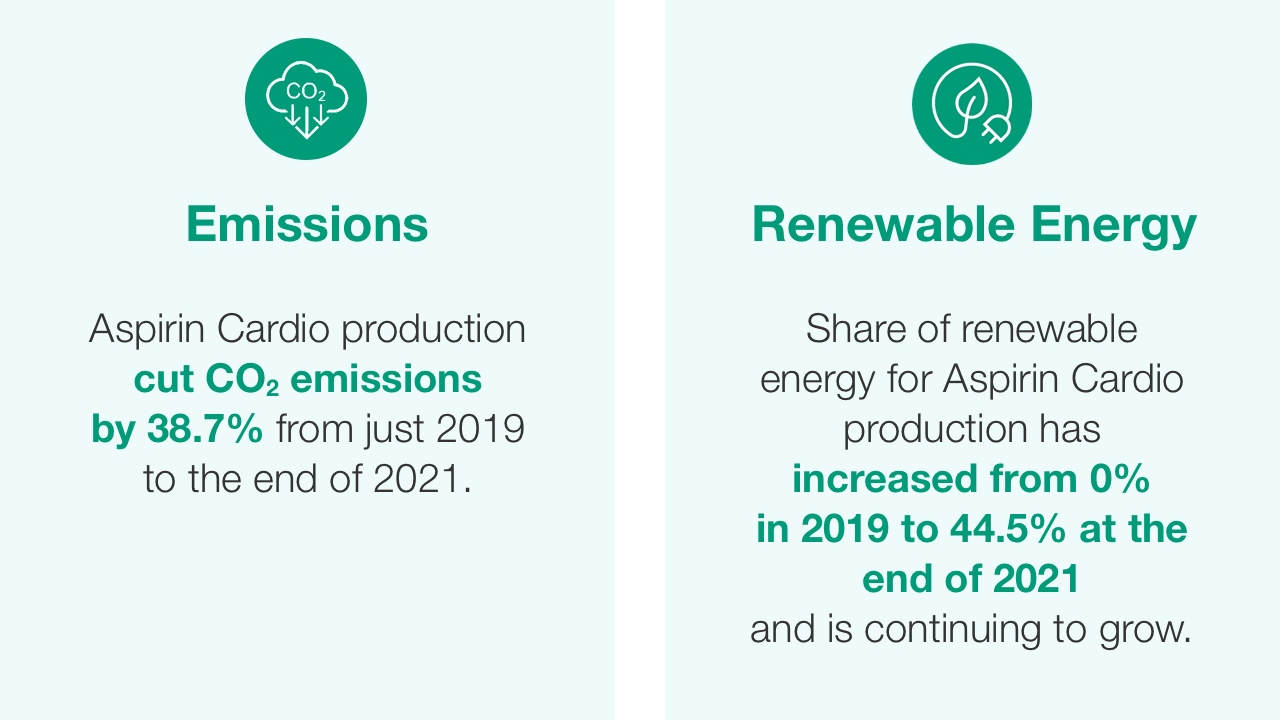
“We looked at the share of renewable energies within our network as well. From 2019-2021, we increased the share of renewables from 0% to 44.5%. But we are striving for a much bigger goal: 100% by 2040.

“Finally, we looked at the product itself. how can we produce it more sustainably? That’s where packaging provided the answer. We reworked the blisters within the packs to use a 14-tablet blister instead of a 10-tablet blister, optimized folding boxes to get more from a carton sheet, and switched to black-and-white leaflets, which make the recycling process smoother. Through these measures, we were able to reduce the amount of packaging material we require by 48 tons annually. That’s the equivalent of 30 Mini Coopers!”
The campaign comes to life
The next step was to turn these impacts into a meaningful campaign showing how Aspirin Cardio’s sustainable principles translated into action. Internally, this was driven by a core team of just three people, working closely alongside country teams at key touchpoints to ensure that the global campaign could be localized effectively for key markets.
The team developed four guiding principles for the campaign:
- Keep the iconic elements of the Aspirin Cardio brand, especially the green color coding and the pill design
- Use strong nature images to create a clear visual connection between Aspirin Cardio and what the sustainability drive is all about
- Be specific and tangible, reporting clear numbers to demonstrate our impact
- Make a distinct call to action with the tagline Protection Beyond the Heart (an update of the existing ‘protecting hearts and lives’.
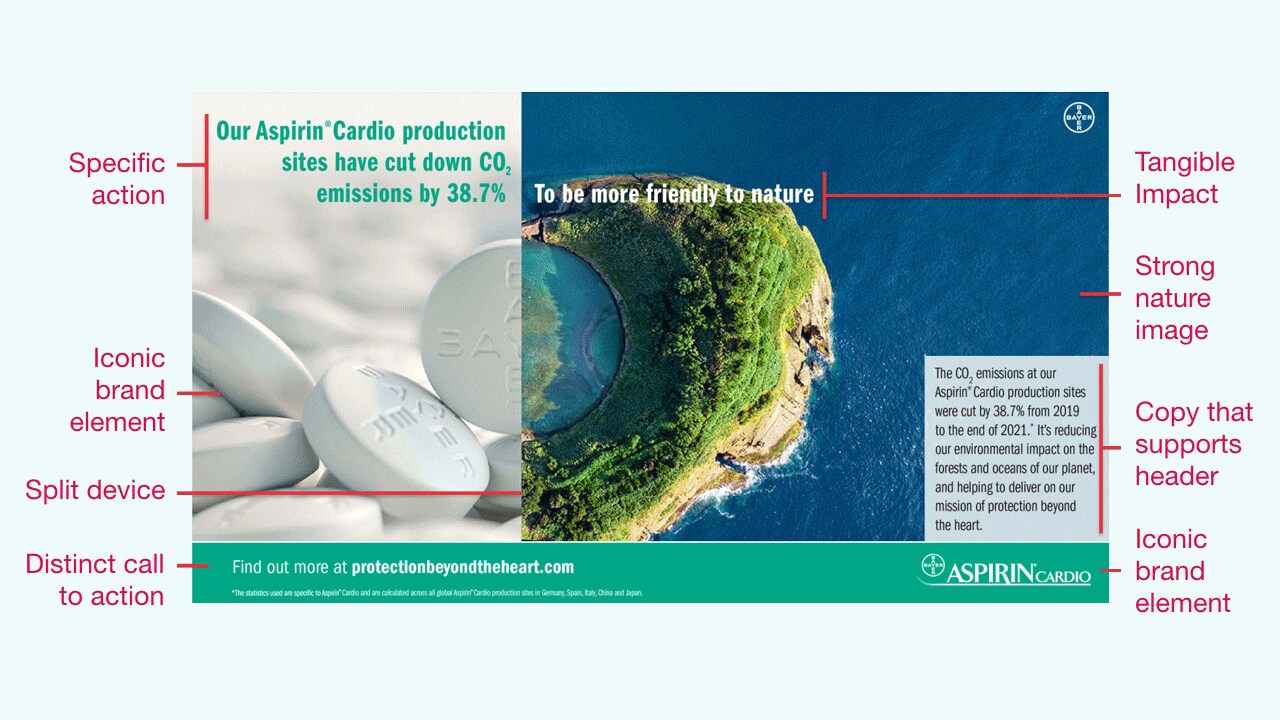
Campaign assets were developed along these lines, with a consistent look-and-feel using images of the pill or packaging as the ‘hero’ and converging with a nature-based image. It is striking and different – but it is also distinctly Aspirin, and distinctly Bayer. A powerful visual that also fits with the overall Bayer purpose ‘Science for a better life’ – and the fact that 80% of people view products more positively when they bear the Bayer logo.
“When we presented the campaign to the Cardiovascular community within Pharma, it ended up being one of my most wonderful professional moments,” says Stefanie. “Aspirin Cardio is one of the oldest brands in the organization, so nobody was expecting something so innovative and creative to come from it. We created excitement – suddenly everybody was talking about it!”
Japan and Spain were the first two countries to go live with the campaign, with Switzerland, Italy and Latin America following. The launches are supported by surveys of healthcare professionals, asking how much sustainability matters to them, and whether they would like to see more of this kind of sustainability initiative. So far, the results show: 80% of respondents consider the topic very relevant and would like to see more Bayer brands follow the sustainability path.
“In Pharma, typical communications are about new medical data,” concludes Stefanie. “But this initiative shows us that communications beyond this can be a real success, as long as they are relevant to our audience. That’s why sustainability is so powerful: because it is a subject they care about. The challenge is to execute a sustainability campaign that is meaningful, fits the brand, and balances our credentials with the demands of our audience.

